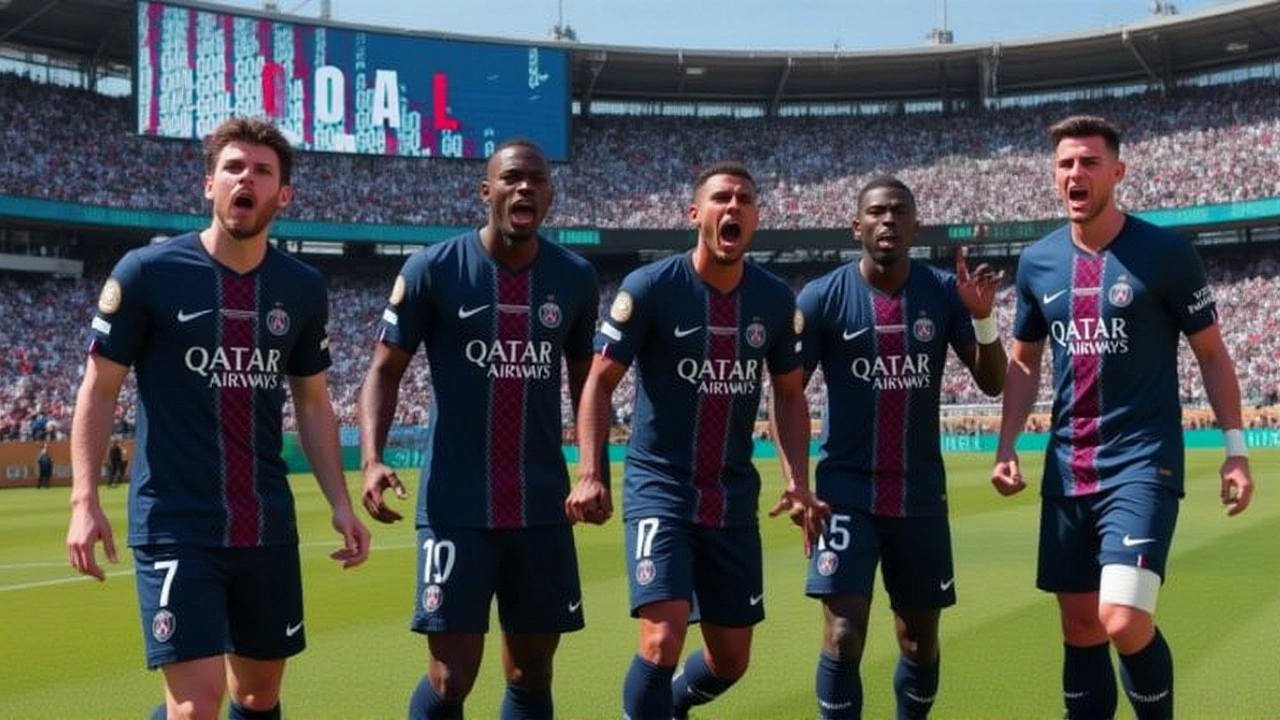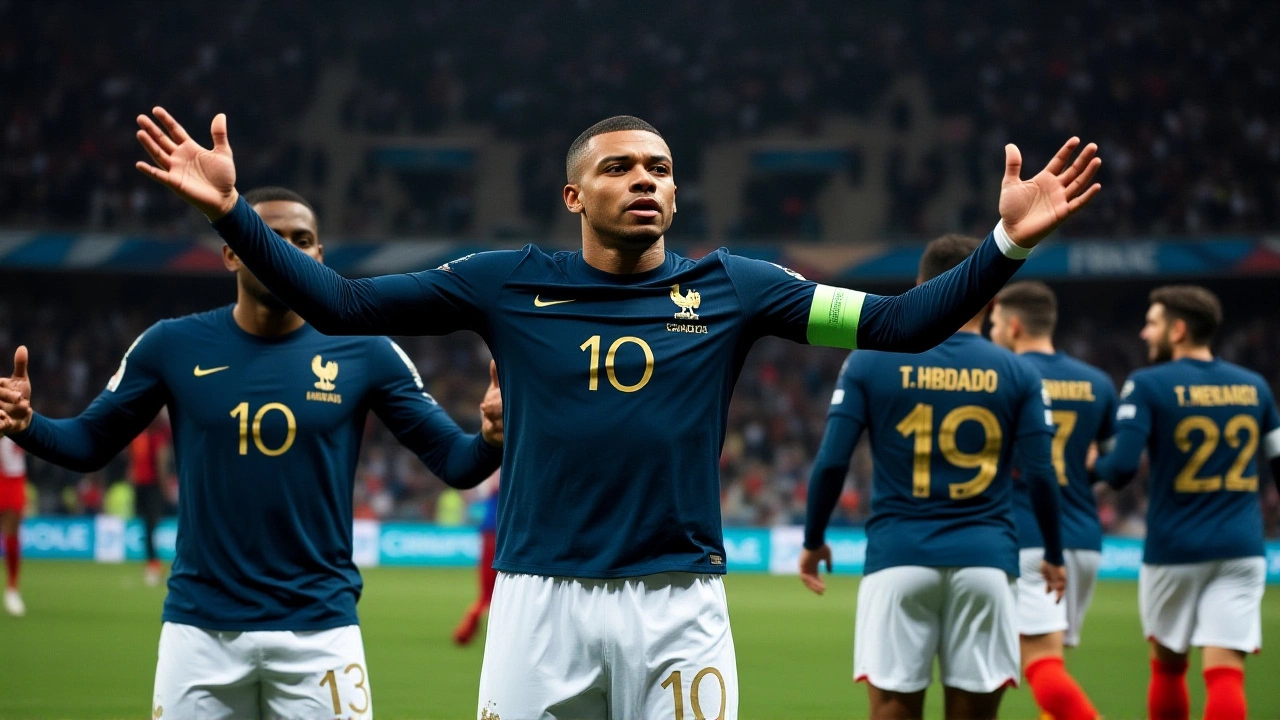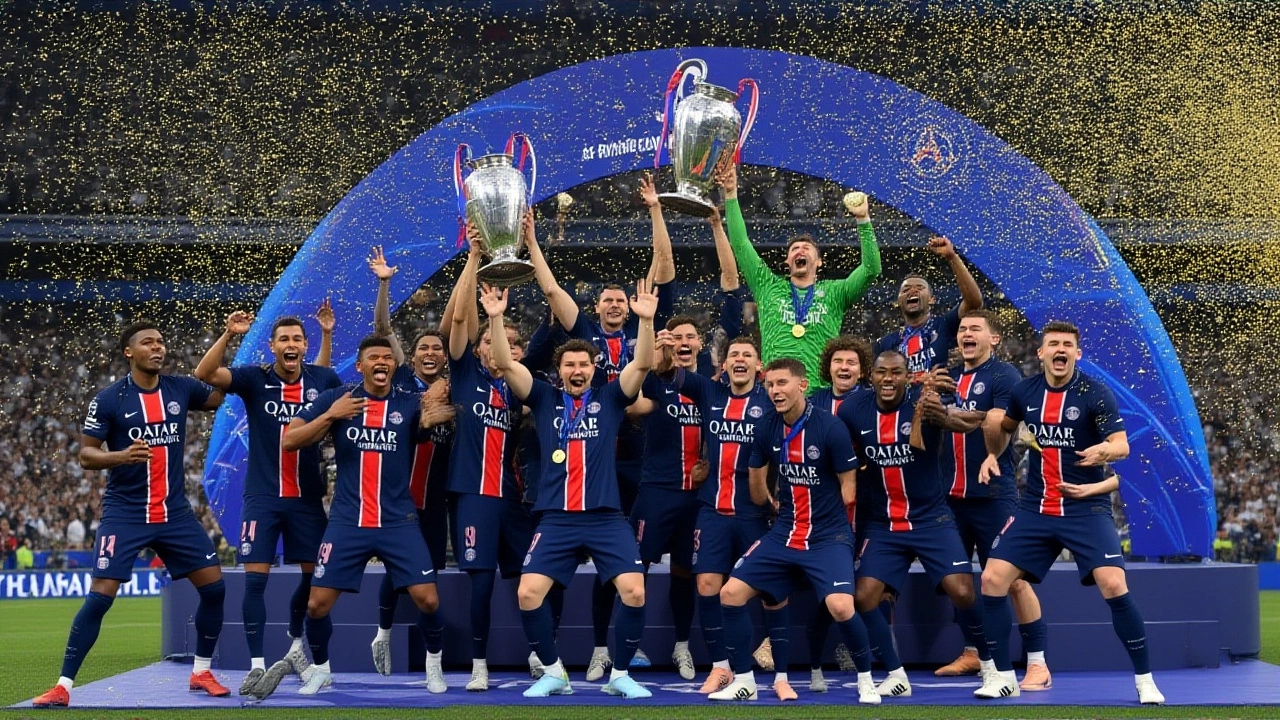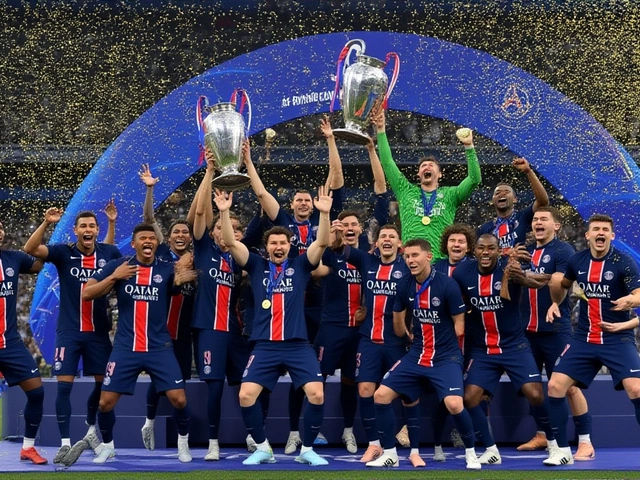Paris Saint-Germain didn’t just win the Champions League—they rewrote its history. On Saturday, May 31, 2025, at Munich’s Allianz Arena, the French giants dismantled Inter Milan 5-0 to claim their first European Cup in 55 years, ending a decades-long quest that had haunted the club since its founding in 1970. The final, which kicked off at 5:25 pm CET and ended at 90'+1, wasn’t just a victory—it was a statement. A 19-year-old phenom named Désiré Doué became the youngest player ever to score and assist in a Champions League final, while Paris Saint-Germain set a new record for the largest margin of victory in the competition’s history. And all of it happened without Kylian Mbappé, the club’s former talisman, who had departed months earlier. The twist? Inter Milan, the Italian giants, looked like a team out of time.
A Final Built on Youth vs. Age
Inter Milan entered the match as the oldest team in Serie A, with an average age of 29. They’d been here before—losing the 2023 final to Manchester City, winning it all in 2010 under José Mourinho. But this time, they were slow, predictable, and out of sync. Paris Saint-Germain, by contrast, was a blur of speed and precision. Their starting XI featured three players under 22: Désiré Doué, Senny Mayulu, and Willian Pacho. Luis Enrique, the Spanish tactician who took over PSG in 2023, had bet everything on youth. He wasn’t just betting—he was winning.
The Goals That Shattered History
The scoring sequence was clinical, almost cruel:
- 12’ — Achraf Hakimi pounced on a turnover and slotted past Yann Sommer, his former teammate, in front of a stunned Inter bench.
- 20’ — Doué, barely 19, got the ball from Ousmane Dembélé, took a deflection off Inter’s Federico Dimarco, and watched it trickle in. The goal was messy—but perfect.
- 63’ — Doué struck again, this time with a curling left-footed shot from the edge of the box. He had now become the first player ever to be involved in three goals in a Champions League final.
- 73’ — Khvicha Kvaratskhelia, the Georgian wizard, cut inside from the left and fired past Sommer. Dembélé’s assist was a thing of beauty: a disguised pass that split two defenders.
- 86’ — Substitute Senny Mayulu, still a teenager, finished off a one-two with Bradley Barcola to seal the most dominant final performance since Benfica’s 5-2 win in 1962.
By the 70th minute, Inter’s players weren’t just losing—they looked broken. Yann Bisseck, brought on to shore up defense, limped off after just eight minutes. Simone Inzaghi’s tactical adjustments were useless. PSG’s pressing, their transitions, their spatial awareness—it was all too much.
What Went Wrong for Inter Milan?
Inter’s collapse wasn’t just about fitness. It was psychological. They’d lost the Serie A title to Napoli just seven days earlier. The weight of consecutive runner-up finishes—domestic and European—was crushing. Adam Bate of Sky Sports, reporting from Munich, captured it best: “They aged before our eyes. Every time PSG surged forward, Inter looked like they were running through syrup.”
Even their usual strengths—set pieces, physicality, experience—meant nothing. Marcus Thuram’s header in the 35th minute, which skimmed the post, was their only real chance. After that, it was all PSG.

The Legacy of a New Era
This win transforms Paris Saint-Germain from perennial underachievers into European royalty. They’ve now completed a 16-game Champions League campaign without a single loss. They did it without Mbappé. Without Neymar. Without the kind of superstar names that once defined them. Instead, they built something more sustainable: a system, a culture, a belief.
For Désiré Doué, the night was just the beginning. He turns 20 on June 3. His two goals and one assist weren’t just stats—they were a declaration. He’s not the future of PSG. He’s the present.
What Comes Next?
PSG will now enter the 2025-26 season as defending champions, with Doué, Kvaratskhelia, and Mayulu expected to lead the charge. The club’s financial model, once criticized for over-reliance on Qatari investment, now looks visionary. Their academy has produced three starters in a Champions League final. That’s unprecedented in modern football.
For Inter Milan, the road back will be long. Simone Inzaghi’s future is in question. The club’s president, Steven Zhang, must decide whether to rebuild around youth or chase another aging star. One thing is certain: they won’t be the favorites next year.

Why This Matters Beyond the Pitch
This final wasn’t just about trophies. It was about generational change. In a sport increasingly dominated by financial power, PSG proved that vision and youth development can still triumph. Victor Wembanyama, the French NBA superstar, posted on X: “This is what French football looks like when it believes in itself.” The sentiment echoed across France, where fans flooded the streets of Paris, Lyon, and Marseille.
And for the first time since 1992, a team won the Champions League without a single player over 30 in the starting XI. That’s not just a win. It’s a revolution.
Frequently Asked Questions
How does this victory change Paris Saint-Germain’s legacy?
Before this final, PSG was known for big spending and early exits. Now, they’re the first French club since 1993 to win the Champions League, and the first in history to do so without a single player over 30 in the starting XI. They’ve moved from financial spectacle to tactical excellence, proving they can build a champion without relying on aging superstars.
Why was Désiré Doué’s performance so historic?
Doué became the youngest player ever to score and assist in a Champions League final at 19 years, 11 months. He’s also the first player in history to be involved in three goals (two goals, one assist) in a single final. His performance surpassed legends like Ronaldo, Messi, and Benzema, who never had three goal involvements in a final. He did it just two days before turning 20.
What record did PSG break with this 5-0 win?
PSG set a new record for the largest margin of victory in a Champions League final, surpassing the previous record of 4-0 set by Real Madrid in 1959 and matched by Barcelona in 2015. No team had scored five goals in a final since Benfica in 1962. It was also the first time a team won the final by five goals without a penalty kick.
How did Inter Milan’s age affect their performance?
Inter Milan’s average starting age was 29, compared to PSG’s 24. By the 60th minute, Inter’s midfielders were visibly fatigued, struggling to track PSG’s relentless runs. Their defensive structure collapsed under pressure, and their lack of pace made them easy prey for Doué and Kvaratskhelia’s quick transitions. Age didn’t mean experience—it meant vulnerability.
What does this mean for French football?
France now has two European champions in the last five years—Real Madrid and PSG both have French managers (Luis Enrique and Didier Deschamps) and French-born stars. PSG’s win proves France can produce elite youth talent without needing to export them. With Doué, Mayulu, and Barcola rising, French football’s golden generation is just getting started.
Is this the end of Inter Milan’s era?
Not necessarily, but it’s a wake-up call. Inter lost their last two finals and their last two Serie A titles. Their squad is aging, and their transfer strategy hasn’t adapted. Without a major rebuild—focusing on players under 23—they risk becoming a footnote in European football. The club’s leadership now faces a choice: reinvent or retreat.

